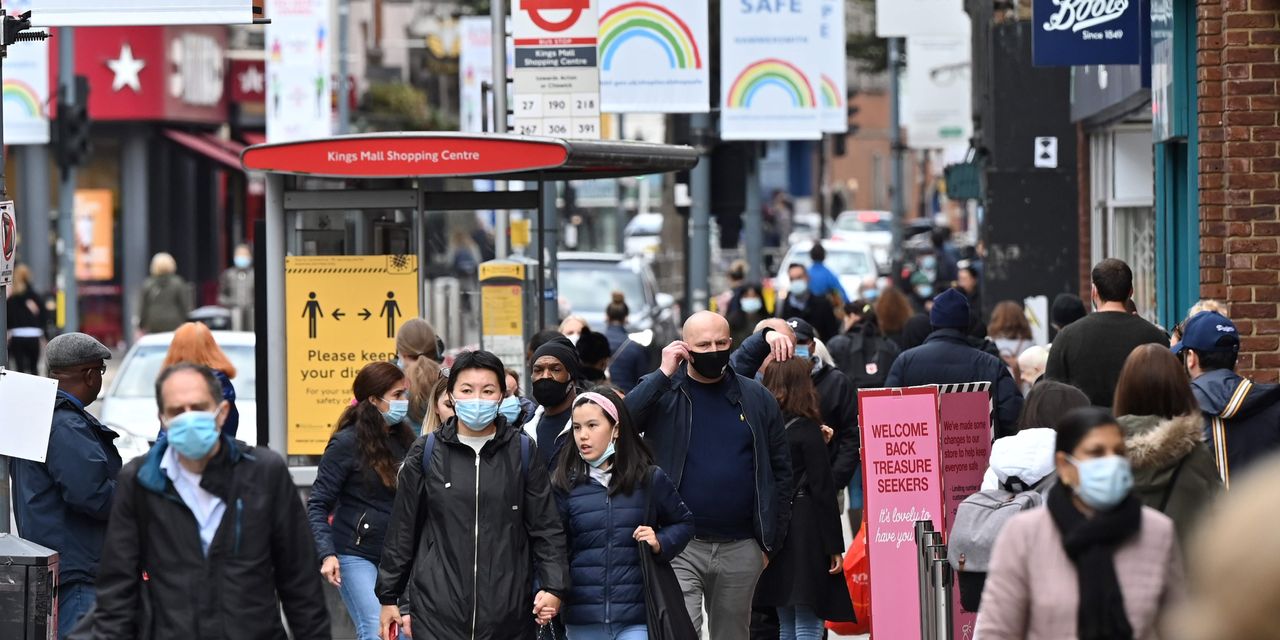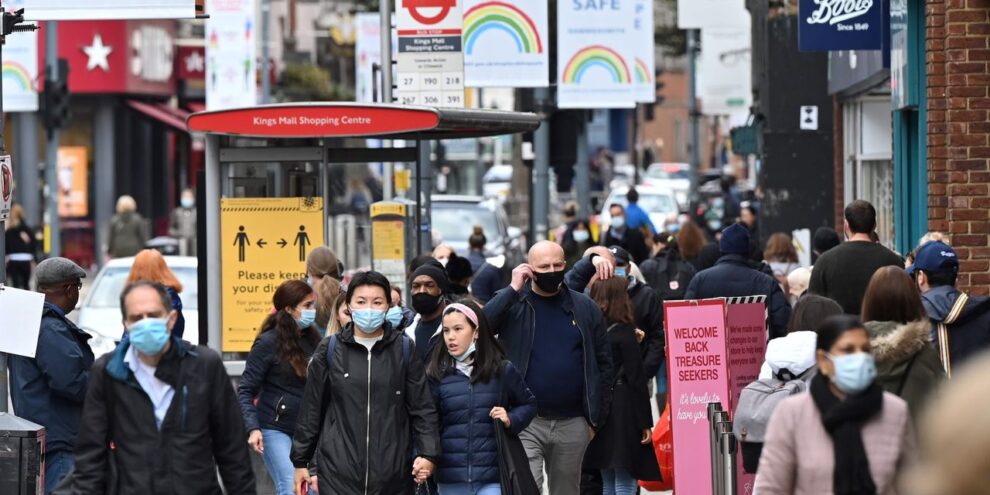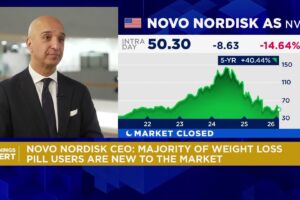
It is known as the golden quarter — the three months before the end of the year are make or break for retailers in the run up to Christmas and the sales period beyond.
But in a dire year for stores groups, the COVID-19 pandemic has forced shoppers to stay at home, which has virtually killed off traditional January sales where long lines were often seen outside malls as citizens waited to bag a bargain.
On the day after Christmas, known as Boxing Day in the U.K., the number of people going into stores (footfall) declined by 63% compared with the previous year, according to data from retail experts Springboard.
COVID-19 was largely to blame but not exclusively. Retail chains, who have to pay expensive rent, staff and energy bills, have been struggling for some time, faced with fierce competition from online rivals like Amazon AMZN, -0.88%.
This and the introduction in the U.K. of Black Friday in recent years, imported from the U.S., has cannibalized the Boxing Day sales, leading some to question whether the latter has a future.
Diane Wehrle, marketing and insights director at Springboard, said: “Boxing Day has been attracting less retail footfall each year in five of the past seven years, as shoppers turn online to grab the best bargains.
“Interestingly, Boxing Day has been evolving into more of a leisure based day, with shoppers starting their trips later on in the day, and combining shopping trips with eating out and catching up with family and friends.
“This year, after spending so much time online, consumers are now experts at online shopping, whereby they know they can enjoy the same discounts, from the comfort and safety of their own home.”
Read: U.S. holiday sales rose 2.4% as online sales jump
Rebeccah Lawless founded the website Osolocal2U in March 2020 to provide a home-delivery service of fresh and delicatessen food during the COVID-19 pandemic.
Around 30 years ago she had set up 4DegreesC to supply top eateries throughout London and the southeast of England, including Michelin-star restaurants, and she saw an opportunity to adjust the business model to deliver to people’s homes through Osolocal2U during the temporary closures of office spaces.
“Our core business catered for restaurants in offices and in March our business dropped by 97% over night,” she told MarketWatch. “We had all this food, lorries, fridges and space, so decided to go into home delivery.
“My son Jack set up a website and we made sure we were available on the phone to help customers new to buying online. They learnt with us and we now have a retention rate of 90%.”
The business started by selling just 43 fresh items and now has 2,500 stock lines, specializing in deli ranges, vegan and gluten-free.
“It sustained a large number of our staff,” said Lawless. “And is definitely a viable business now we have chosen to go more into the deli ranges and higher-end products not sold in supermarkets.”
A report by the Centre for Retail Research, or CRR, compiled for VoucherCodes, estimates £3.2 billion ($4.36 billion) was still expected to be taken by retailers in the U.K. on Boxing Day but more than half went online.
It produced fresh research out today (Jan. 1) that showed that 2020 was one of the worst years for U.K. high streets (roads lined with shops) in the past 25 years, with around 3,400 jobs within the retail sector being lost each week.
During 2020, according to end-of-year figures from the CRR, a total of 176,718 jobs were lost from high streets, main shopping destinations, towns and villages, as well as small shopping parades and isolated stores across the U.K.
Prof. Joshua Bamfield, a director at the CRR, said he was expecting more pain to come for the sector in 2021, warning of up to 200,000 more jobs being lost, adding “our forecast is based upon a number of factors such as the cumulative effects of months of closure and its impact upon cash flow and rent arrears that will be payable when the moratorium ends. Whilst the longer-term effects of the greater use by shoppers of all kinds of online retailing is likely to be hugely damaging for physical stores.”








